Man's Best Friend Becomes His Most Vicious Enemy in Lewis Teague's Brutally Intense 1983 Adaptation of Stephen King's Cujo
He's a good boy gone bad!
Because he is fundamentally a good person, Stephen King is famous for letting anyone adapt one of his short stories in exchange for a token one-dollar fee.
The prolific author is as ubiquitous on-screen as on the page, but at the very start of his career, some of our greatest living filmmakers, whether in horror or otherwise, adapted his work.
Brian De Palma famously adapted Carrie for the big screen in 1976 before the even more distinguished Stanley Kubrick pissed off King by transforming his deeply personal metaphor for alcoholism into one of the best, most revered, and discussed horror movies ever made.
In 1982, King joined forces with fellow frightmaster George Romero for the first time on Creepshow, before David Cronenberg adapted The Dead Zone and John Carpenter gave Christine a ride, both in 1983.
Cujo director Lewis Teague was a relative unknown compared to the giants who first brought King’s work to the big screen. Like Joe Dante, he was a hotshot editor for Roger Corman, who segued smoothly to the director’s chair with an overachieving Jaws riff, 1980’s Alligator.
Before Alligator, Teague made his directorial debut with the John Sayles-penned 1979 cult gangster movie Lady in Red and served as second-unit director on Sam Fuller’s autobiographical war epic The Big Red One.
Alligator brought the hungry young filmmaker to the attention of movie lover Stephen King, who suggested him for the gig. King was pleased with the result.
According to IMDB trivia, “Stephen King has stated that he feels Dee Wallace gives the best performance in this film of any film or TV adaptation of his books, including Kathy Bates’s Oscar-winning turn in Misery (1990).”
That’s high praise, considering that her competition includes Jack Nicholson and Shelly Duvall in The Shining and King himself in Maximum Overdrive.
King’s words are merited. While it may not represent the single greatest performance in any King adaptation, Wallace grounds the horror with a nuanced, multi-dimensional, and utterly convincing portrayal of a complicated middle-aged woman at a personal and romantic crossroads.
I suspect that Cujo was pitched as “Jaws with a dog” because every horror movie with a killer animal gets compared to Steven Spielberg’s classic.
Like Jaws, Cujo is so compelling as a grown-up drama full of psychological depth and unforgettable characters that it almost doesn’t need a horror element. Cujo would not have become iconic if it were about a love triangle between three adults trying to make the best of a difficult situation, but it has the emotional heft to succeed as a drama of infidelity as well as a horror movie about a gentle giant who devolves into murderous insanity after getting bit by bats.
In Cujo, Wallace-Stone plays Donna Trenton, a mother and wife who cannot resist the oily allure of Casanova Steve Kemp (Peter Stone, Wallace’s real-life husband until he died in 1995) despite seemingly being married to the perfect man.
Steve is handsome, successful in his job at an ad agency, rich, an attentive husband, and a terrific father to Tad (Pintauro), a sensitive, traumatized youngster who is skittish and scared under the best of circumstances.
Yet, the movie does not judge Donna harshly for her infidelity. It understands that adultery is part of adult life.
Most movies would cast, as Tad, a fourteen-year-old with a smoker’s rasp and perpetual stubble, in the challenging lead role of a six-year-old trying to navigate his parents’ rocky relationship and avoid being eaten by a rabid Saint Bernard.
Cujo instead cast a six-year-old WHO DID NOT KNOW HOW TO READ WHEN CAST in one of the most critical and challenging roles in a hard-R exploration of what happens when man’s best friend begins behaving like its most vicious enemy.
Future Who’s the Boss star Danny Pintauro was six when he made Cujo. He didn’t look his age; he looked younger. He is TINY for his age. From a creative standpoint, this pays rich dividends. Pintauro is terrifyingly convincing. From a moral perspective, it’s borderline unconscionable.
The actor’s Lilliputian size makes him a heartbreakingly vulnerable and relatable figure. He’s a tiny human being confronting a dog whose massiveness represents only one of the many elements that make it terrifying.
Cujo is bigger than Tad. King and Teague heighten the contrast by having the enormous dog terrorize a tiny, terrified child and an average-sized woman, not a big male bruiser.
Pintauro is too convincing. I felt for him as a small child confronted with grisly adult horrors. As a father of a seven-year-old, I was traumatized just watching poor Pintauro. I can’t imagine how intense and nightmare-inducing it must have been to have to confront the beast in the flesh.
Cujo does not judge Donna for wanting something more than her almost suspiciously perfect hubby, but it does imply that a friendly pooch becoming a crazed monster out to kill her and destroy her family represents a form of cosmic punishment for her inability to remain faithful.
Before he terrorizes the adulterer and the tot, Cujo belongs to Joe Camber (Ed Lauter), a drunk abuser of women and children and an all-around lout.
After her husband moves out upon learning of his wife’s infidelity, Donna takes her Pinto to Joe to get fixed. The Ford Pinto was notorious for being cheap, unattractive, and prone to exploding.
I grew up knowing the Pinto not as a popular car that people drove, but rather as a cheap punchline, a lazy shorthand for everything shitty and cheap in the automotive universe.
As we have established, King draws extensively from his own life for his fright fiction. He owned a malfunctioning Ford Pinto at the time. So King knew firsthand that Ford Pintos represented a real horror show even when not confronted with a scarily sized Saint Bernard out for blood.
Like Steven Spielberg, King grounds his fantastical tales of horror, science fiction, and fantasy in a richly realized portrayal of American life. Cujo epitomizes King’s genius for combining the banal with the frightful and the mundane with the malevolent.
In its third act, Cujo turns into a sweaty, visceral, all-out quest for survival as a frothing, rabid dog that may or may not be possessed by the evil spirit of Frank Dodd, a cop/serial killer who figures prominently in The Dead Zone tries to break into the Pinto, a real tin can of a car so that it can feast merrily on its inhabitants.
Cujo was a nice boy. Then, he got rabid and/or possessed by the spirit of pure evil and turned into an unfeeling, unthinking monster.
Dogs are so sacred to us as Americans that there’s something borderline heretical about depicting one as a force for evil intent on unleashing its jaws of fury on a scared little boy and his equally freaked-out mother.
King was so impressed with Teague’s handling of Cujo that he followed it up with 1985’s Cat’s Eye, another King adaptation featuring a winking cameo from Cujo.
Cujo and Cat’s Eye may be King adaptations directed by the same man but tonally, they couldn’t be more different. Cat’s Eye is campy and light, where Cujo is brutal and pummeling in its furious intensity.
Cujo was a modest box-office hit at the time of its release, but its title permanently entered the cultural lexicon in a big way as shorthand for an evil dog, the same way Christine stands in for any and all evil cars.
King can be a harsh critic of adaptations of his work, but he was a big fan of Cujo, particularly Wallace’s performance.
Considering the sizable cultural real estate Cujo takes up as a novel and movie, I’m surprised it never led to a sequel or remake.
That may soon change. Darren Aronofsky, of all people, has been attached to a Netflix adaptation for producer Roy Lee. I’m skeptical as to whether the movie will happen, but the man who gave us Requiem For a Dream is overqualified to recapture the movie’s sweaty, pummeling, uncompromising intensity.






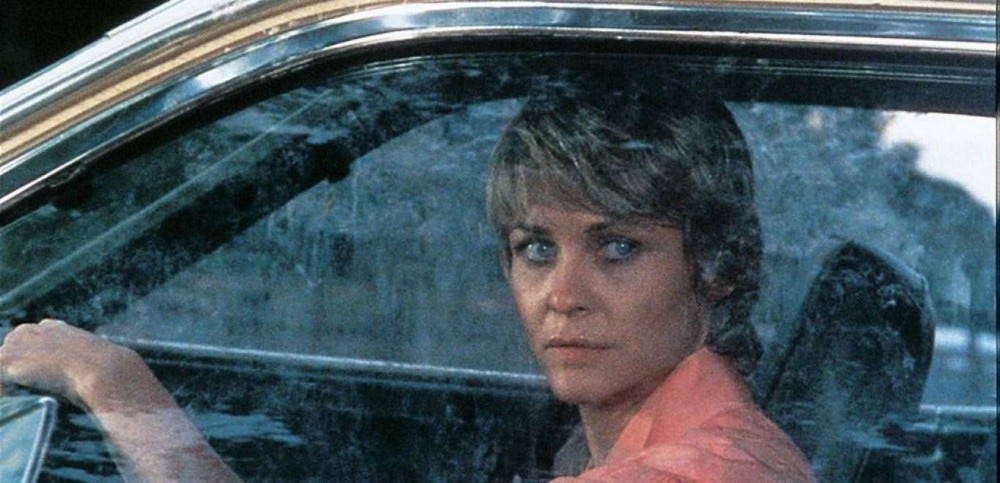
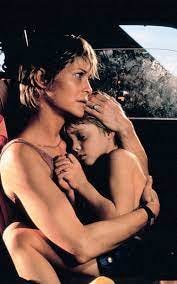

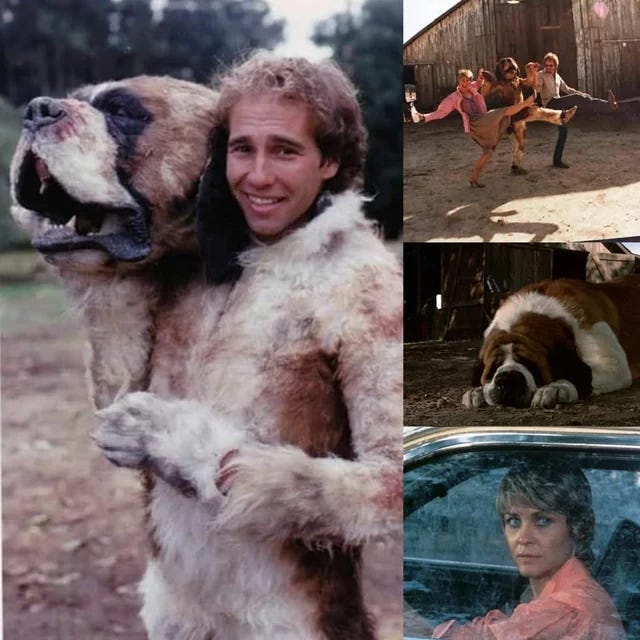
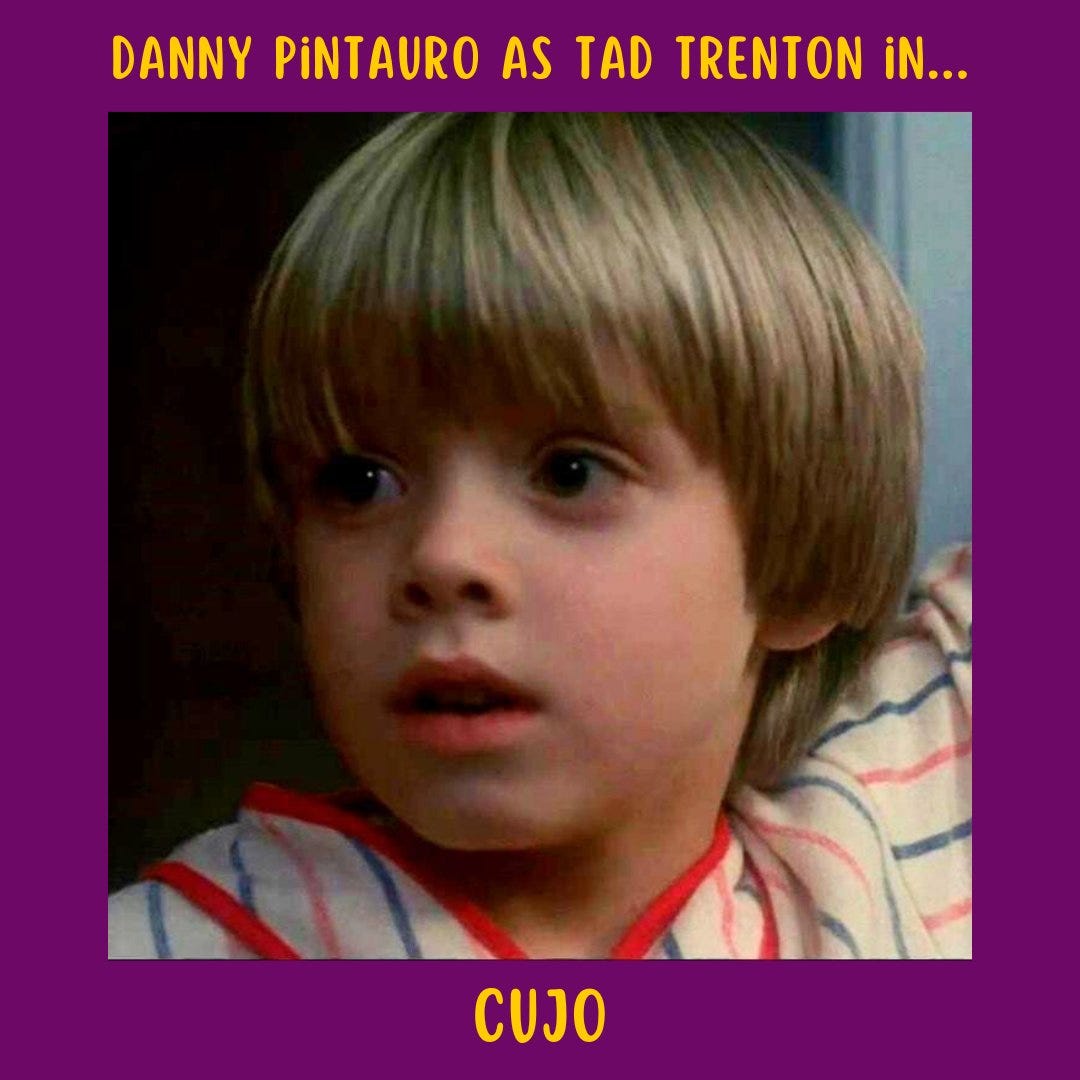
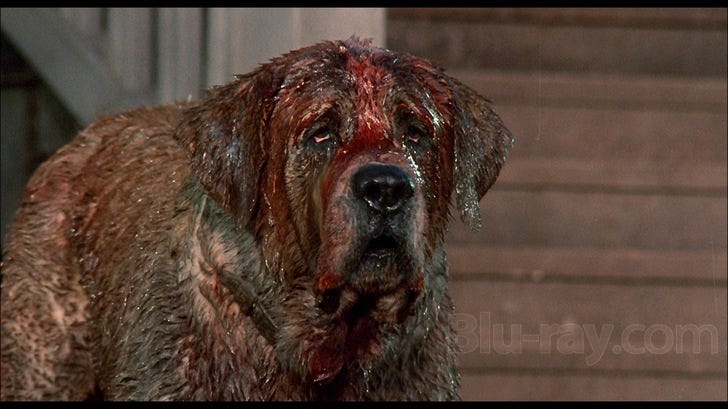



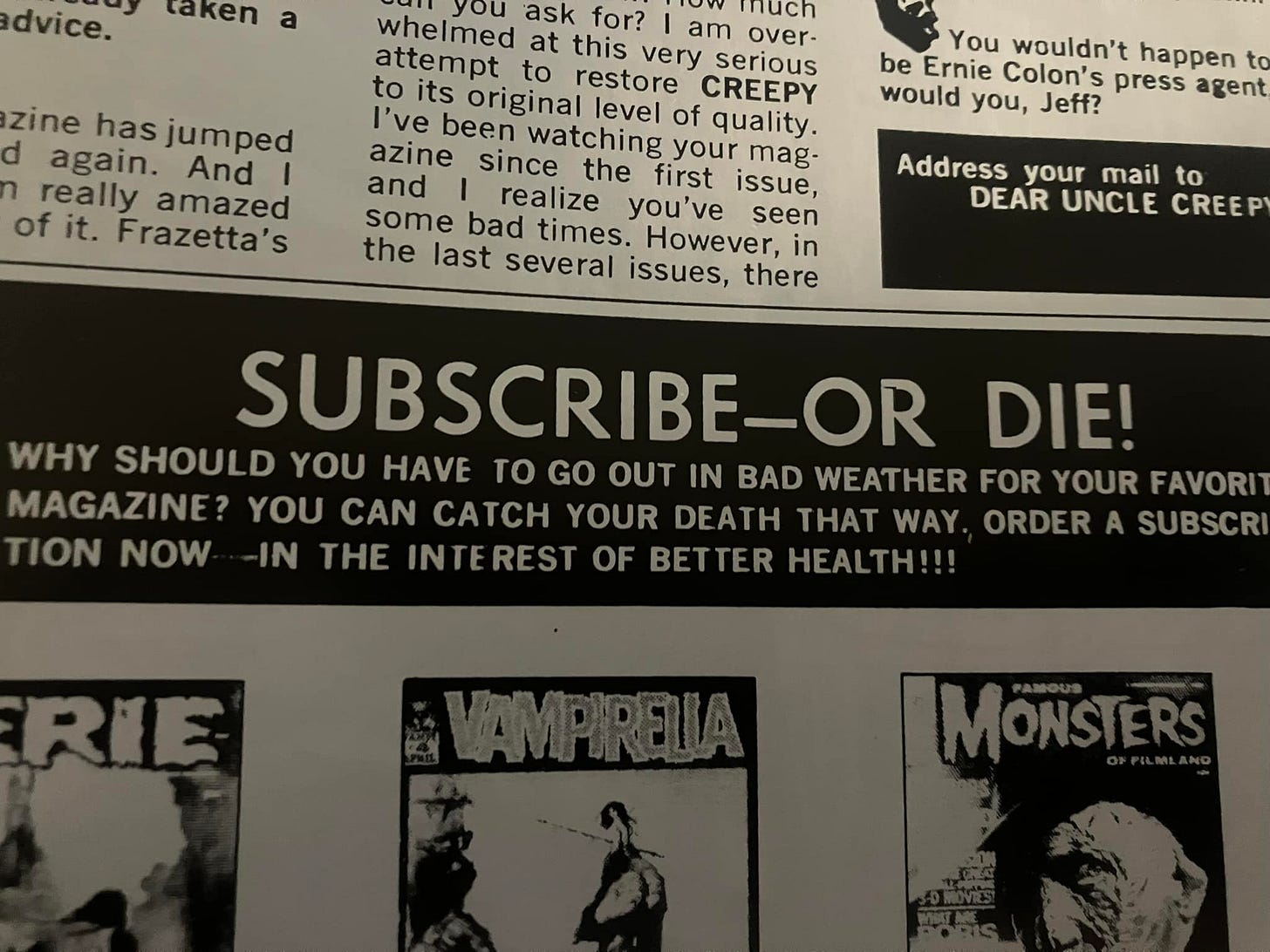
CUJO is one of the only novels I've read that actually frightened me. I should revisit this film.
The book Cujo was a great book. The writer is a good person who has written many books. He also has done acting. 🎭. Thank you.